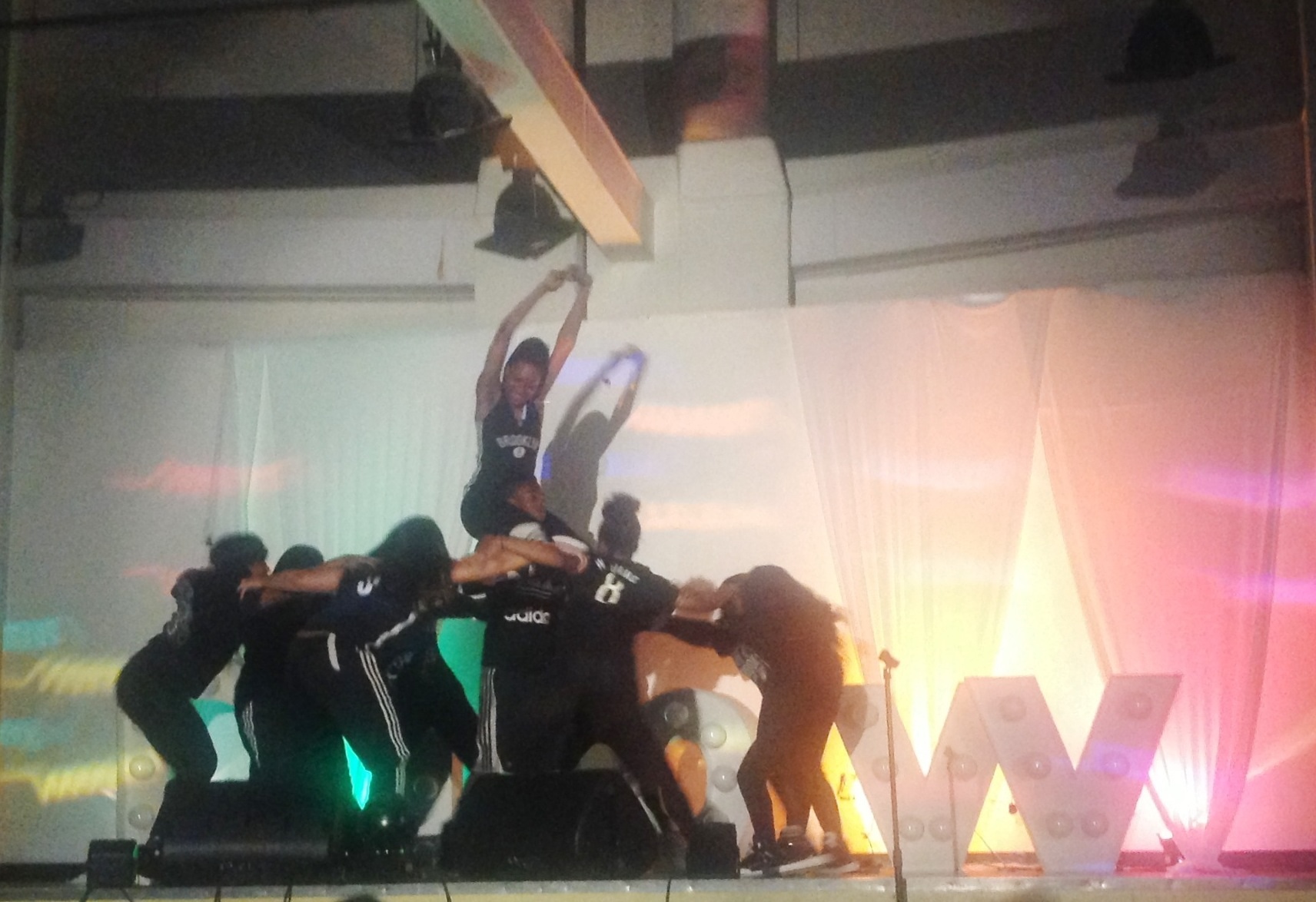
But program is on NYCHA’s chopping block
Students who received achievement awards at a ceremony in a Melrose community center in June hope the initiatives that have helped them to excel aren’t about to disappear.
Young people displayed their dancing, singing and literary skills for a gathering of 500 at the third annual awards ceremony of the Vacamas GLOW after-school program on June 21 at the Classic Center in the Melrose Houses, to help honor their classmates. Most of the students attend local schools, but some come from as far as Brooklyn, lured by the program’s glowing reputation.
The Vacamas program was formed as a non-profit in 1924 to provide lower- and- middle-income children with recreational activities and tutoring. Although there are Vacamas programs across the city, the GLOW program is the only one not centered in a school.
But the city’s Housing Authority says the program is on the chopping block due to an 11 percent decrease it says will force it to close senior centers and community centers like the Classic Center.
Students have benefited from the program’s location in a NYCHA facility, as has the rest of the community, says program director Kevin Ervin, adding the program keeps kids active seven days a week.
“Yes we sing, yes we dance, yes we laugh, yes we run, but we also learn,” said Ervin, adding police have told him youth violence declines noticeably when the center is open.
The award ceremony was established two years ago to honor students from area elementary and middle schools for their academic, artistic and athletic accomplishments. At the June 21 event, students performed the songs, dances, poetry recitations and scientific experiments they had worked on all year, and some prominent South Bronx natives urged them to keep striving. Former St. John’s hoops star Dwight Hardy presented an award, and rapper Oun-P encouraged them to keep honing the talent they had displayed during the performances.
But Michael Friedman, the program’s executive director, struck a somber note, telling students and their parents that the center could close by the end of the summer.
“We are in jeopardy,” he warned.
NYCHA officials say the agency faces a budget crunch resulting from the federal government sequester that took effect earlier this year. In an email response to the Express, a spokesman for the agency wrote that “NYCHA continues to be faced with a shortfall in federal funding of nearly $150 million and must proceed with difficult decisions to balance our budget.”
Parents are leery of the negative impact closing the program would have on their children and their neighborhoods.
“This program is not only beneficial for children but also for families,” said Emilia Mercado, 34, a single mother and NYCHA resident, adding that keeping her kids occupied after school without Vacamas will be an ominous task, as will making up for the academic assistance the program offers.
All 80 eighth-graders registered in the program graduated from middle school, and 15 of those students will go on to attend specialized vocational high schools.
Friedman said he would have to lay off half his staff by Sept. 1 if the cuts take effect, noting that many work additional unpaid hours to help keep the programs flourishing. If the layoffs happen, two-thirds of the 150 students now in the program would have to be dropped, he added, and fears hours would be drastically cut for the students still enrolled.
Friedman says communities feel the pain when youth programs are eliminated.
“Three things occur between 3 o’clock in the afternoon and six in the evening in these streets, and it’s drugs, sex, and violence,” he said.
Hilda Luna, 16, a former GLOW participant who won this year’s Community Support volunteer award, credited Vacamas for keeping her off the streets.
“If it wasn’t for this program, I would’ve probably been on the streets selling drugs,” said Luna, who now attends University Prep Charter High School. She returned to the program to volunteer helping other young people.
NYCHA is proposing that the program begin charging parents a fee, but Friedman says that is an unrealistic goal that will lead to many students dropping out of the program. He hopes the City Council will follow through on plans to allocate additional funds to the program instead.
“If we had to charge their parents, a lot of them would not be able to afford it”, said Friedman.
Emilia Mercado said she would only be able to afford to pay fees for one or two of her children.
“They all love this place so much, none of them want to miss a day” she said, adding that NYCHA administrators should “walk a day in my shoes, as a single parent with five kids and without a job and see how this after-school program is a blessing.”

